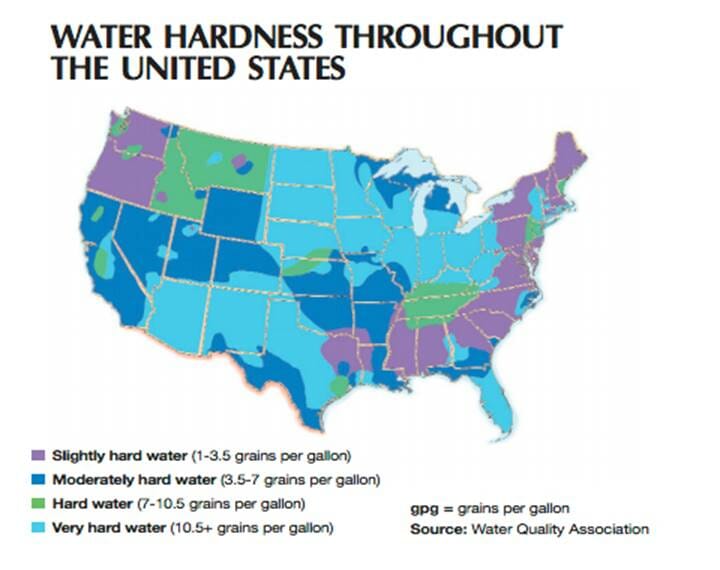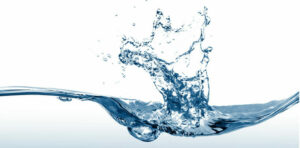Water is a critical component of today’s commercial kitchens — impacting everything from equipment performance to the taste of food and beverages. Because of its importance, operators should know the quality of their water.
Lime scale buildup on equipment or other water-related service issues can be a sign of poor water quality. These issues are typically geographically based and relate to the source of water. As a rule of thumb, water that comes from a surface source, such as a lake or river, has more sediment than water that comes from a well. The well-sourced water, however, typically has higher mineral content.
As depicted in this map, the Southwest and Midwest regions of the U.S. have very hard water, which refers to the presence of minerals which can create lime scale buildup.

Why do foodservice operators need to address water quality issues? There are four key drivers:
1. Equipment Protection
A priority for operators is making sure that the equipment stays up and running — whether it is an ice machine, steamer or fountain beverage dispenser. If scale and other mineral buildup are eliminated, the more reliable the equipment will be and the higher the cost savings will be for the operator, due to less repair and replacement.
2. Water Taste and Odor
Restaurant operators, especially ones that are brewing tea or coffee, don’t want any off-putting tastes or smells in their water. Chlorine can taint the natural flavor of menu items, so they want to start with quality water as their beverage base.
3. Aesthetics
Water should be clear and clean, and if the operation has a water source with a high level of total dissolved solids, this can be an issue — both in how the water looks and how it tastes.
4. Health and Safety
Consumers are becoming more concerned with the health and safety aspects of water. For example, cysts (microorganisms that are impervious to chlorine) can cause intestinal disorders, and the foodservice industry requires that filters for beverage equipment have a cyst rating.
If an operator is concerned about their facility’s water quality and wants to assess the situation, the best way is to work with a water treatment company that focuses on foodservice equipment, as opposed to a residential company. At Antunes, we walk them through how to take an untreated water sample, run it through our lab to determine the chemical makeup and make recommendations on how to address any challenges.
One such solution is installing a water filtration system. When correctly built and configured, a water filtration system will both reduce the downtime for water-related equipment and improve the water quality.
With appropriate maintenance, water filtration systems serve as “insurance” to make sure other kitchen equipment operates properly, and they can contribute to the quality and consistency of menu items that use water.
See how Antunes’ water filtration solutions met the needs of a large convenience store chain in this case study.


 Splash Q&A with Jane Antunes Bullock
Splash Q&A with Jane Antunes Bullock